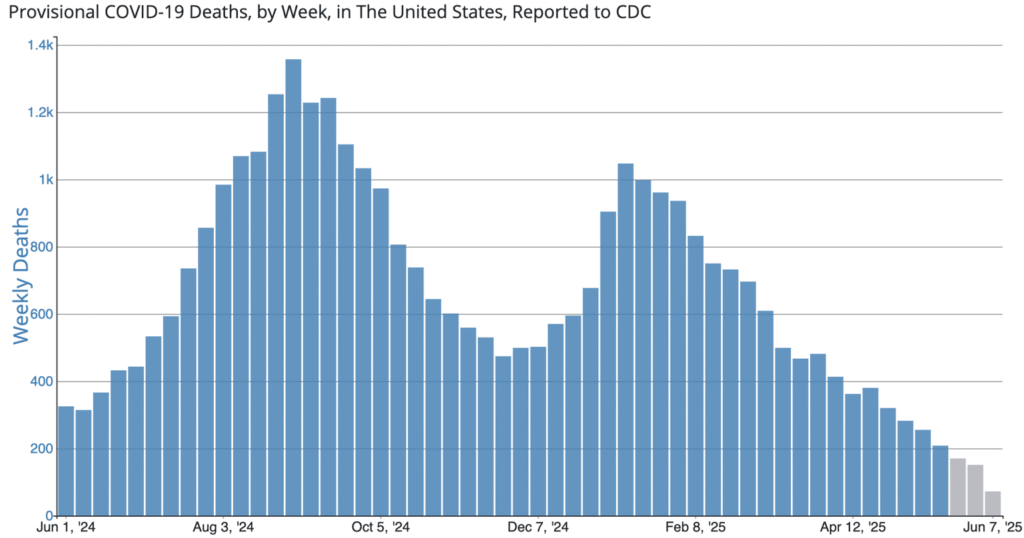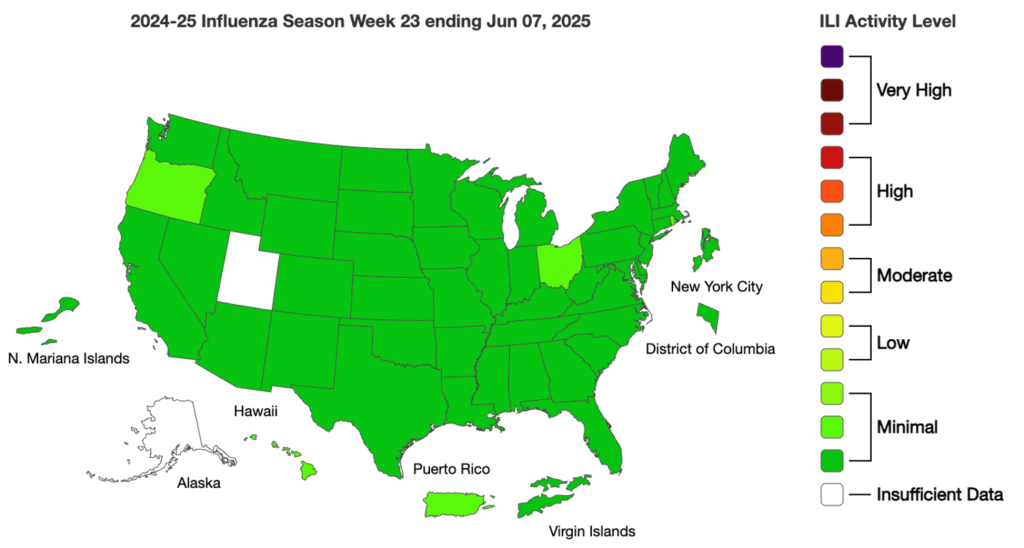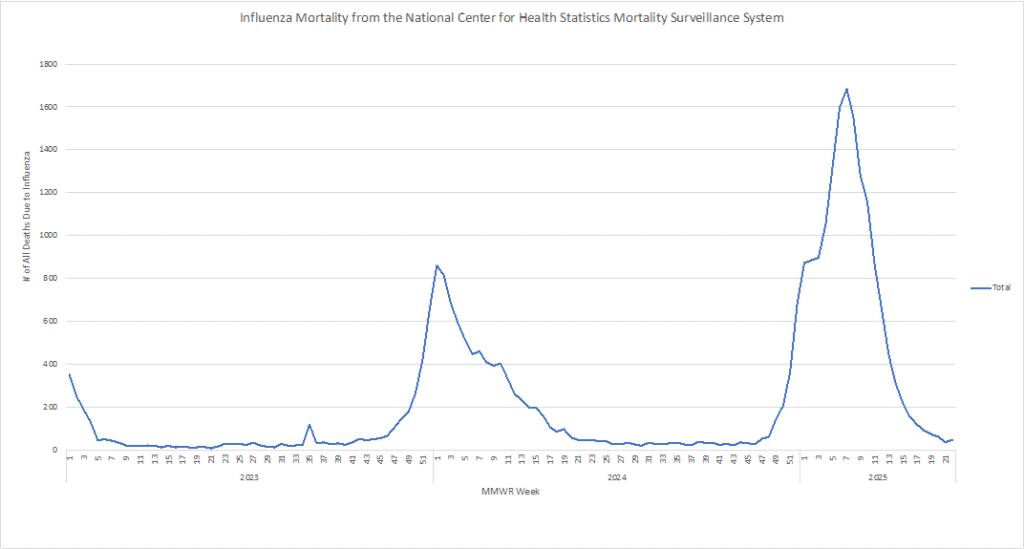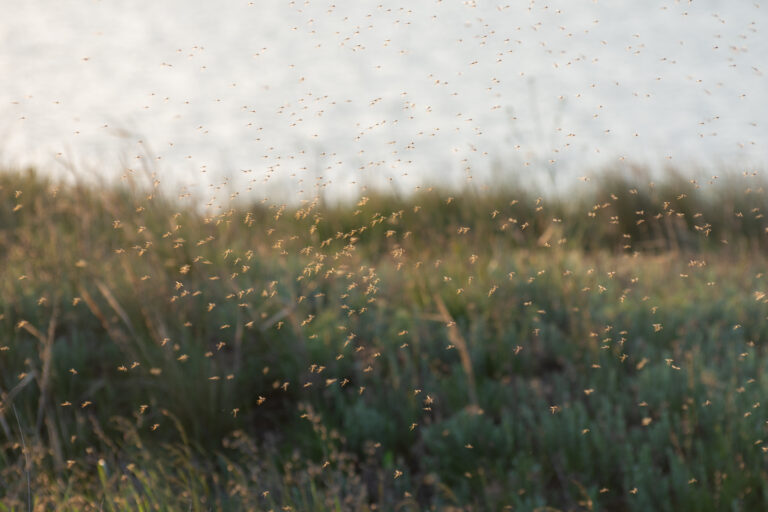A recent risk assessment from the WHO has warned of significant spread of the Oropouche virus (OROV) transmitted to humans by midges. While the majority of outbreaks had been in the Amazon region, epidemiological data show a marked increase and geographical spread in cases in 2024, with first reports in some areas such as Cuba, Panama, and throughout Brazil. While cases reported in the U.S. and Europe have, thus far, been travel-related, climate change likely contributes to the spread of the midge-transmitted virus, and midges are common in some areas of the U.S., including Cleveland … where IAFP will be held this year.
It also is unlikely that Lake Erie midges are infected with Oropouche, because phylodynamic analysis suggests that most OROV movements are short range and consistent with vector flight distance, but the assessment is a strong reminder of the need for caution around biting insects, awareness of biting insects in areas in which you reside or travel, and the use of preventive measures to help avoid being bitten – and infected.
To provide a bit of reassurance to those traveling to Cleveland for IAFP – Not only are the Lake Erie midges said to be non-biting, but the midges are also most active in late May and early June when they become a serious nuisance. However, it was an October swarming that has taken its place in history for Cleveland MLB fans in what has become known as “the bug game.” Not only did a cloud of midges swarm the pitcher’s mound, “the mosquito-like insects clung to (Yankee pitcher Joba) Chamberlain’s sweat-streaked face, impeded his vision and crawled into his nose, mouth and ears,” causing him to first walk a batter then throw wild pitches. The “home field advantage” eventually enabled Cleveland to win the game in overtime.
All of which is to say, it is prudent to do a bit of research to understand the conditions of areas to which you will be traveling – including that of seasonal insects and viral conditions. Taking preventive action is key, such as wearing long sleeves and pants and/or using an insect repellent. But even that takes a bit of research, as was discovered in the Bug Game when the players used a brand of insect spray that was not only useless against the midges but seemed to further attract them.
For more information on insect activity and prevention, see TAG’s article on Spring Brings Swing in Disease-Carrying Pests.
And for more public health tips and food safety information, visit the TAG booth (#528) at IAFP!
See you in Cleveland!
COVID Risk Matrix:

Influenza:


Infectious Disease News:
- Cases of flu in 2025 in Australia to date are tracking well ahead of 2024 figures. Health officials are cautioning that 2025 may be the worst season on record, and vaccination is urged. They note that rates of vaccination have dropped in recent years.
- A review of cases of long COVID in more than 1,000 adults, revealed that while physical health improved markedly by about 3 months after infection, it took up to 9 months for mental health to fully recover. However, in about 20% of cases, it took as long as 1 year for a full recovery.
- A CDC report of mosquito and tick-borne diseases showed that West Nile virus was the commonly reported domestically acquired disease in 2023, accounting for 95% of cases. Risk management efforts, including the use of personal protective equipment and insect repellent and controlling insect breeding areas (e.g., standing water) as well as healthcare screening for these diseases are recommended.
- A top CDC scientist, Dr. Fiona Havers, resigned over concerns that respiratory virus hospitalization data may no longer be used objectively, following recent controversial changes to the CDC’s vaccine advisory committee (ACIP). The committee, now including vaccine skeptics, is set to meet soon to discuss vaccine recommendations. Her resignation follows similar departures, including that of another CDC official after HHS Secretary Robert F. Kennedy Jr. revised vaccine guidance, drawing criticism for misinformation.





